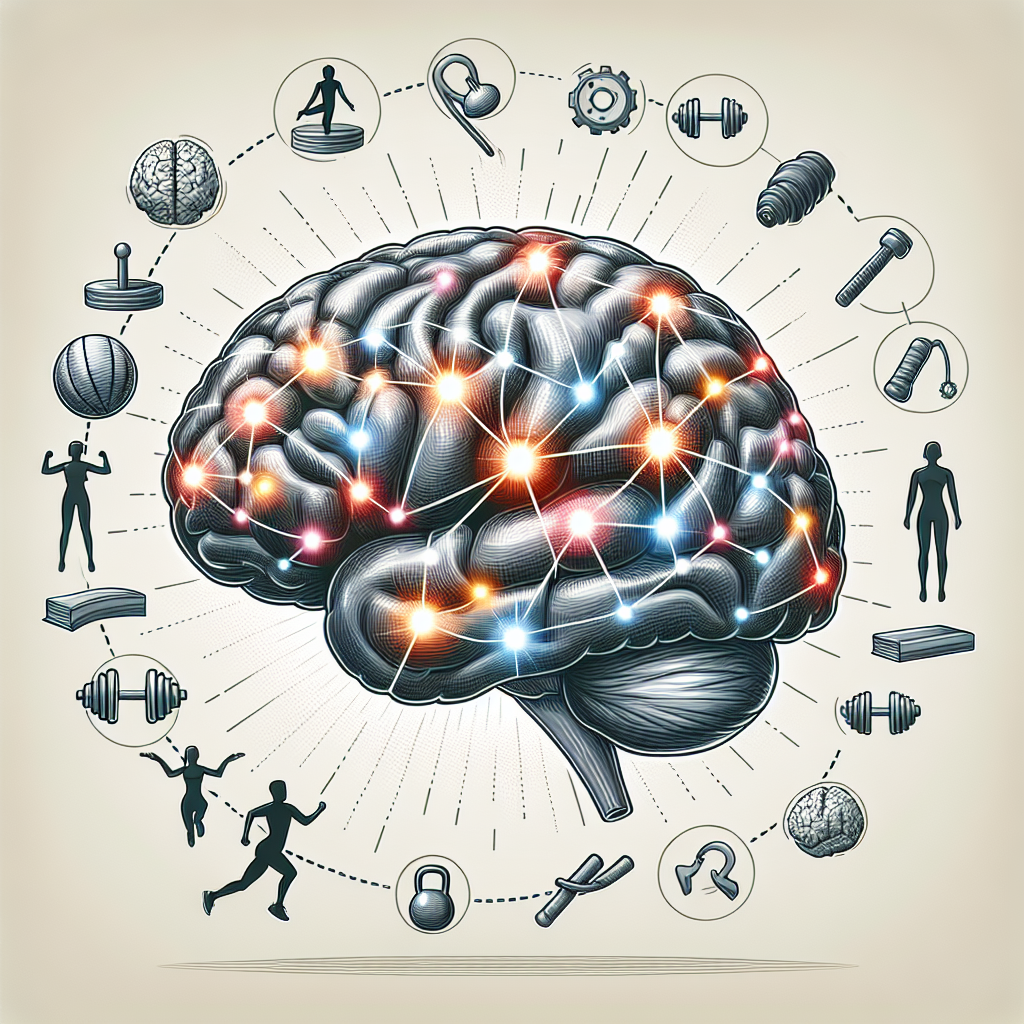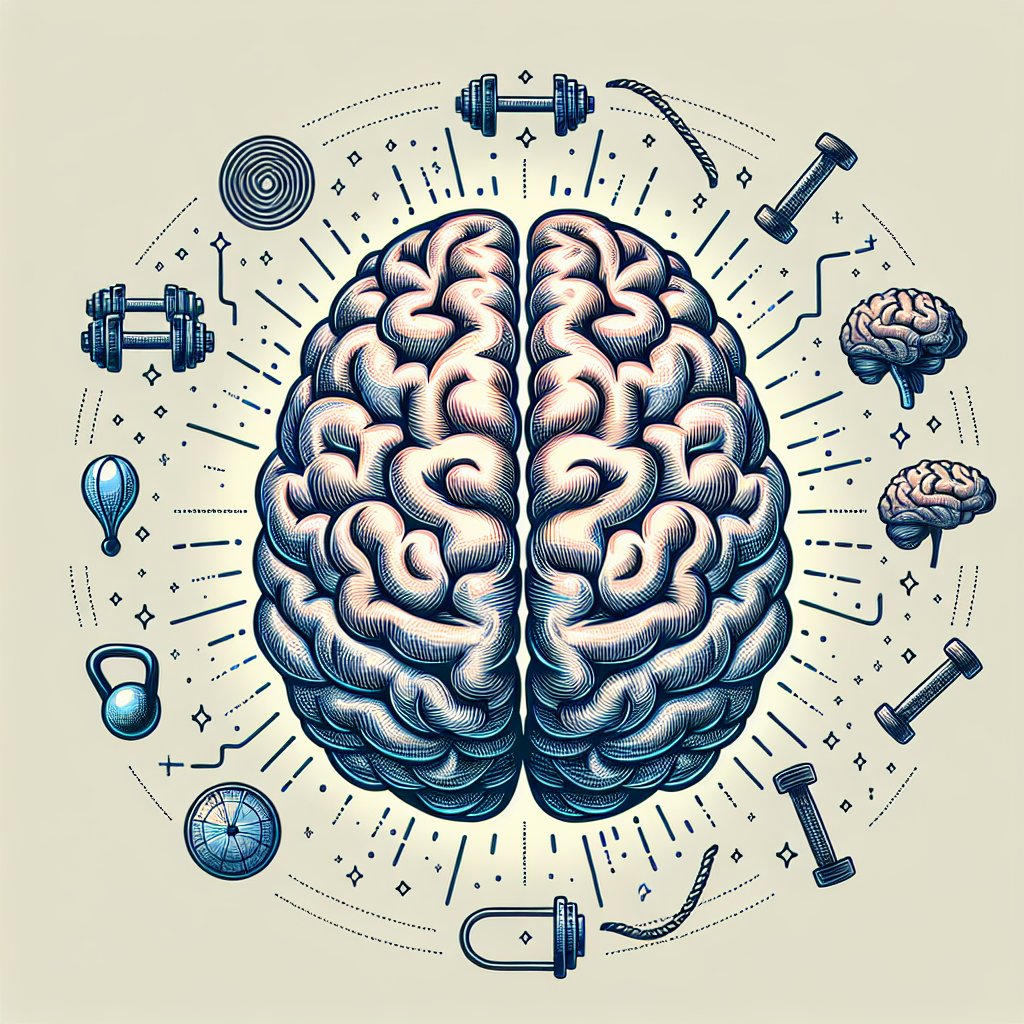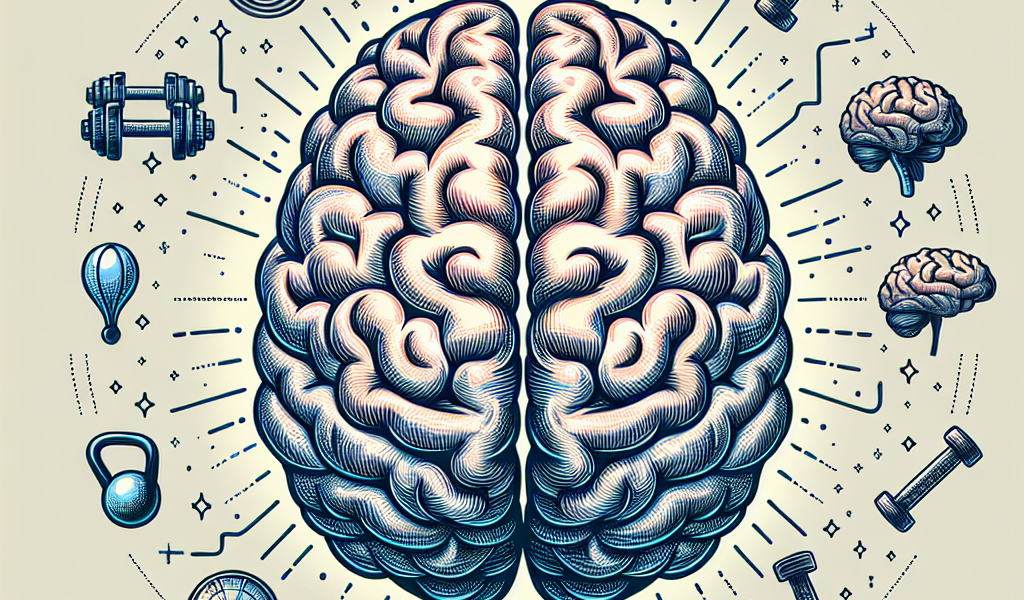What Are Brain Training Exercises And How Do They Work?
From Sudoku puzzles to memory games, brain training exercises are specifically designed activities that can help boost your cognitive functions. In this article, you’ll explore the intricate world of brain training, understanding what these exercises truly entail, and how they operate on a neuroscientific level. Unlock the secret to enhanced memory, sharpened focus, and improved mental agility. Your journey towards understanding the brain’s complexities starts here. Get ready to learn about a phenomenon that might just hold the answers to staying mentally sharp for a lifetime.

Understanding Brain Training Exercises
Brain training exercises, also known as cognitive training, involve engaging in certain mental activities aimed at enhancing cognitive function. These activities are designed to challenge the mind and can help enhance various cognitive abilities like memory, problem-solving skills, attention span, reading comprehension, among other abilities.
Definition of brain training exercises
Brain training exercises are an assortment of challenges or tasks designed to stimulate and engage different parts of your brain. These tasks are often structured in the form of games or timed activities that are fun, engaging and mentally challenging. More importantly, these exercises are centered around the functioning of the brain and areas where improvement can be seen, such as memory, attention span, or problem-solving abilities.
Overview of cognitive fitness and its relevance
Cognitive fitness is your brain’s overall health and agility. Just as you would maintain physical fitness with routine exercise, cognitive fitness can be boosted with regular mental stimulation. Brain training exercises are a wonderfully effective way to keep your cognitive fitness in check. They can help preserve, and potentially even enhance, your mental agility, focus, memory, and creative problem-solving capabilities.
The Science Behind Brain Training
Role of neuroplasticity in brain training
The mechanisms of brain training are closely tied with the concept of neuroplasticity – the brain’s incredible capability to reorganize itself and form new neural connections throughout life. Whenever you learn something new or practice a skill, your brain adjusts, changes, and strengthens to accommodate this. Brain training exercises are designed to tap into this adaptability and potentially enhance your cognitive powers.
Brain’s ability to adapt to mental workouts
From a scientific perspective, these mental workout exercises work by essentially training your brain to create new neural pathways, thereby improving its overall efficiency and processing speed. The more you engage with challenging cognitive activities, the better your brain becomes at adapting to these tasks, stimulating growth and connectivity among neurons.
Different Types of Brain Training Exercises
Memory and recall exercises
Memory and recall exercises are abundant and varied. These include tasks like remembering sequences, playing card memory games, or the classic memory challenge of tying a string around your finger and remembering what it is there to remind you of. All these are designed with the intention to hone and develop your short-term and long-term memory functions.
Problem-solving exercises
Problem-solving exercises involve tasks designed to improve your analytical thinking, mental flexibility, and decision-making skills. The utilization of puzzles, riddles, or logic-based games can stimulate these aspects effectively. For instance, something as simple as a Sudoku puzzle or complex like a chess game, can greatly impact your problem-solving skills.
Concentration and focus training
Concentration and focus training often entails exercises that require sustained mental effort and attention. These can be anything akin to solving crossword puzzles, playing matching pair games, or even meditating. Such exercises can significantly refine your ability to focus.
Other cognitive skills targeted by brain training exercises
Other than memory, problem-solving, and focus, brain training can also help improve various cognitive abilities like processing speed, visual and spatial skills, language skills, and even multitasking abilities. They can come in various forms such as word games, drawing exercises, and practicing juggling, respectively.

How Effective Are Brain Training Exercises
Discussion on current scientific consensus
The effectiveness of brain training is a hot topic in the scientific community, with varied opinions. Some studies suggest that individuals who engage consistently in brain training exercises show improvements in specific cognitive functions, while others point out that while people get better at the exercises themselves, these improvements don’t always translate to general cognitive improvements.
Instances where brain exercises have shown tangible results
Anecdotal evidence and certain research suggest that certain types of cognitive training programs have proven beneficial. Specifically, those aimed at improving targeted cognitive abilities such as attention span, processing speed, and memory recall.
Criticism and debates regarding effectiveness
However, it is important to note that the field of brain training isn’t without its debates and criticisms. Many scientists argue that while someone might get better at a specific task through regular training, it doesn’t necessarily mean that this improvement will carry over to other brain functions.
Methods of Brain Training
Traditional methods of brain training
Traditional methods include solvable exercises such as crosswords, chess, memory games, puzzles, and so on. These have been used for several years, and are still effective today, providing mental stimulation that challenges the brain.
Digital solutions and apps for cognitive training
With the advent of technology, several digital solutions and apps have become available. These encompass a wide variety of games and activities that simultaneously entertain and stimulate various cognitive functions. They also offer benefits like tracking progress and personalizing routines to suit your specific requirements.
The Role of Consistency in Brain Training
Importance of regular brain exercise
Just like physical training, consistency is key when it comes to brain training. The idea is to keep challenging your cognitive functions regularly. Consistent practice strengthens your neural circuits, which can improve memory, concentration, problem-solving skills, and more.
Impact of duration and intensity on effectiveness
Not only regular practice but also the duration and intensity of brain training exercises contribute to their effectiveness. Short and intense training sessions can have immediate but short-lived effects, while longer, moderate-intensity training can have more lasting effects.
Potential Benefits of Brain Training
Cognitive benefits such as improved memory and problem-solving
Brain training primarily targets cognitive enrichment. Regularly engaging in brain-training exercises can boost memory, enhance problem-solving skills, improve attention span, and increase information processing speed.
Impact on mental health and stress management
Impressively, brain training can have a positive impact on mental health. Several cognitive exercises can help manage stress, reduce anxiety, and boost overall mood.
Can brain training delay effects of aging?
While more research is required in this area, some studies suggest that brain training may slow cognitive decline associated with aging and could potentially stave off conditions like dementia and Alzheimer’s.
Who Should Consider Brain Training
Appropriateness of brain training at different ages
Brain training can be beneficial to everyone, regardless of age. From kids to the elderly, brain training offers a method of improving mental agility and cognitive strength.
Brain training for individuals with cognitive impairments
Especially beneficial are cognitive exercises for those suffering from cognitive impairments like brain injuries, or for those diagnosed with cognitive disorders such as ADHD, where consistent cognitive workouts can assist in regaining or improving cognitive abilities.
Brain training as a preventive measure
Brain training can be a great proactive approach to keep cognitive decline at bay. Regular mental stimulation keeps the brain active and agile, which may reduce the risk of age-related cognitive diseases.
Guidelines for Effective Brain Training
Choosing the right exercises according to personal needs
The right brain training exercises differ from person to person. Therefore, it is essential to choose exercises that cater to your specific requirements. Focus-designed training exercises are beneficial if you are looking to enhance your concentration, while memory exercises would be more appropriate for someone looking to improve their recall abilities.
Balancing brain training with physical exercise and proper nutrition
Just as brain fitness matters, so does physical fitness and nutrition. Regular physical exercise and a well-balanced diet contribute significantly to maintaining optimum brain health. Therefore, integrating brain training exercises with regular physical activity and healthy eating provides a holistic approach to overall health and well-being.
Avoiding unnecessary mental fatigue
Lastly, it’s important to note that brain training exercises should pose a healthy challenge, not lead to mental exhaustion. You should strike a balance between stimulating your brain and avoiding unnecessary mental fatigue. It’s important to practice and progress gradually, at your own pace.
Future Perspectives of Brain Training
Role of advancing technology in shaping brain training techniques
Technology has had a significant impact on brain training. Advances in technology allow for personalized brain training programs, precise tracking of progress, and access to diverse cognitive training activities. Future advancements are expected to introduce even more refined techniques that would further enhance our cognitive abilities.
Upcoming research and its potential implications for brain training methods
With ongoing research, our understanding of neuroplasticity and the brain’s adaptability continues to evolve. Future findings will likely shape new methodologies and offer improved techniques for cognitive training, making brain training exercises an even more integral part of our lives.

